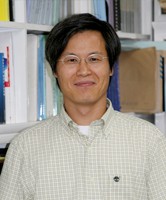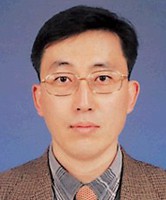KNU College Engineering.
Enjoy Engineering! Make Dreams Real!
Schools/Departments
- School of Mechanical Engineering
- School of Architecture
- DEPARTMENT OF MATERIALS SCIENCE AND METALLURGICAL ENGINEERING
- Department of Civil Engineering
- Department of Applied Chemistry
- Department of Chemical Engineering
- Department of Polymer Science and Engineering
- School of Materials Science and Engineering
- Department of Textile System Engineering
- Department of Environmental Engineering
- School of Energy Engineering
Home Schools/Departments> Department of Civil Engineering
Department of Civil Engineering

Department of Civil Engineering
- + 82-53-950-5607
History
The Department has continued to develop since its establishment in 1982. Currently, there are 8 faculty members responsible for the teaching and research activities. To date, a total of 806 bachelors degrees and 285 masters degrees have been conferred. The Department is scheduled to merge into the School of Architecture and Civil Engineering in 2007 according to the Brain Korea 21 Project that specializes in the prevention of disasters.
Objective/Scope
The field of Civil Engineering is very extensive due to the variety of characteristics of the various areas which are under the responsibility of civil engineers. In general, civil engineering projects are large in scale and expensive and they have an important impact on the environment, society, and economy as well. The design and construction of civil engineering projects involves not only social and political factors but also requires advanced educational and scientific techniques. In order to meet these requirements, civil engineers must study the theories required for the design and construction of public and industrial facilities, and advanced scientific techniques, such as structural engineering, geotechnical engineering, water resources engineering, construction engineering, environmental engineering, and surveying.
Undergraduate/Graduate Program
In support of the mission of the Department and our educational objectives, the faculty have prepared a set of undergraduate program outcomes we expect our graduates to achieve. Students graduating from the Department will have: 1) ability to apply knowledge of basic mathematics, science, and engineering to solving civil engineering problems; 2) ability to design a civil engineering system to meet desired needs while incorporating engineering standards and realistic constraints such as those based on economic, environmental, ethical, health and safety, social, and political issues; 3) understanding of the impact of civil engineering solutions in a global/political/societal context; 4) ability to use modern tools, techniques, and computation methods necessary for civil engineering practice; and 5) ability to apply probability, statistics, and economics in civil engineering decisions.
The graduate program is nationally recognized as one of the leading programs in the country. With more than 8 research groups and laboratories, and unique collaborations with peer institutions, the Department equips graduate students with practical skills and research capabilities. Whether considering a career as a practicing engineer or a lifetime in research and academia, the Department can help you step up to a higher level. The Department is currently conducting the BK21 Project that is managed by the Ministry of Education(MOE), Republic of Korea, to nurture the creative leaders of high technology in this world of knowledge-based society of the 21C. With this project, the curriculum will be rearranged to underline the growth of creativity of graduate students. Graduate school students will get constant assistance in a financial way and the quality of education will be uplifted with great ability.










